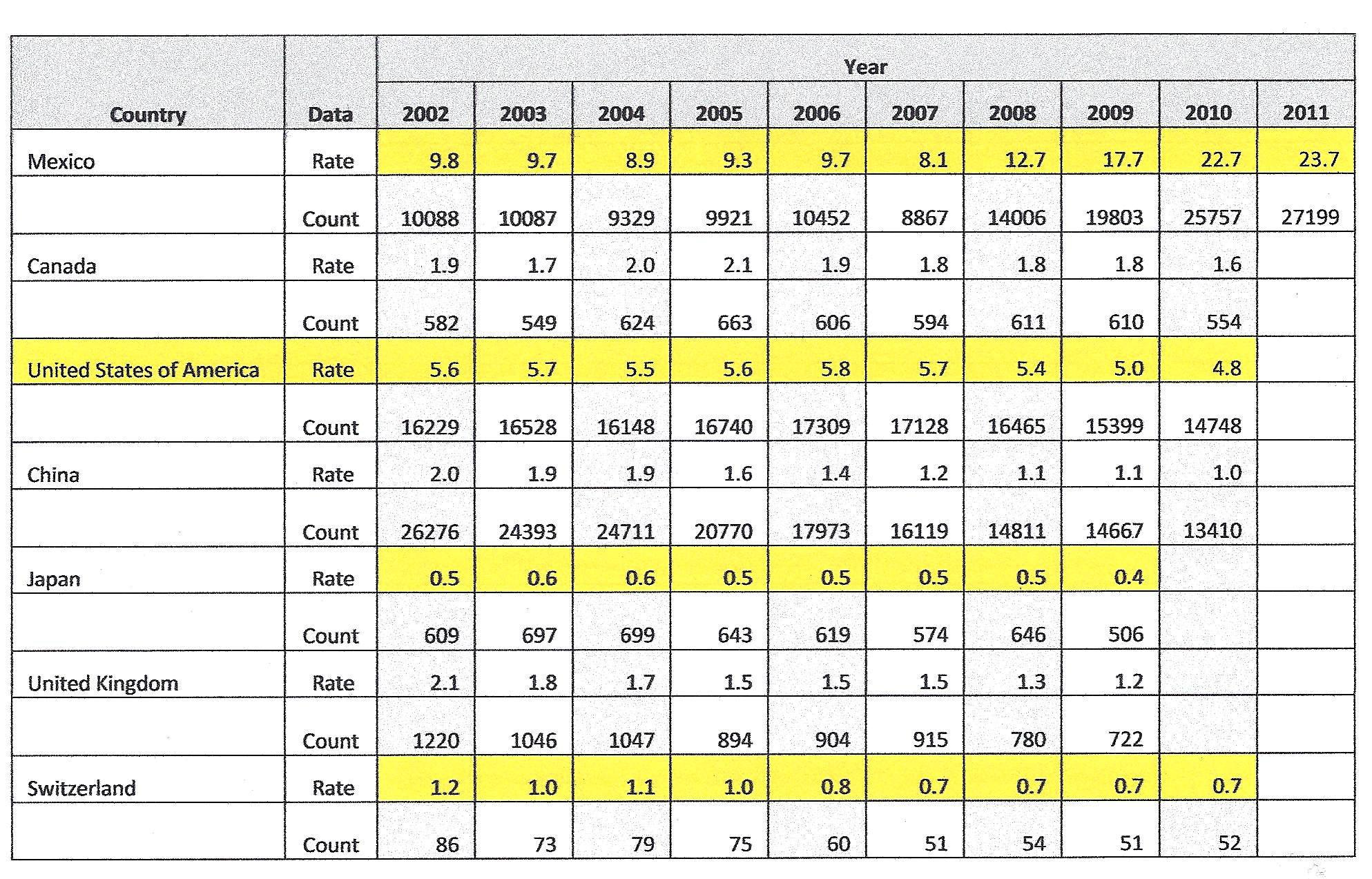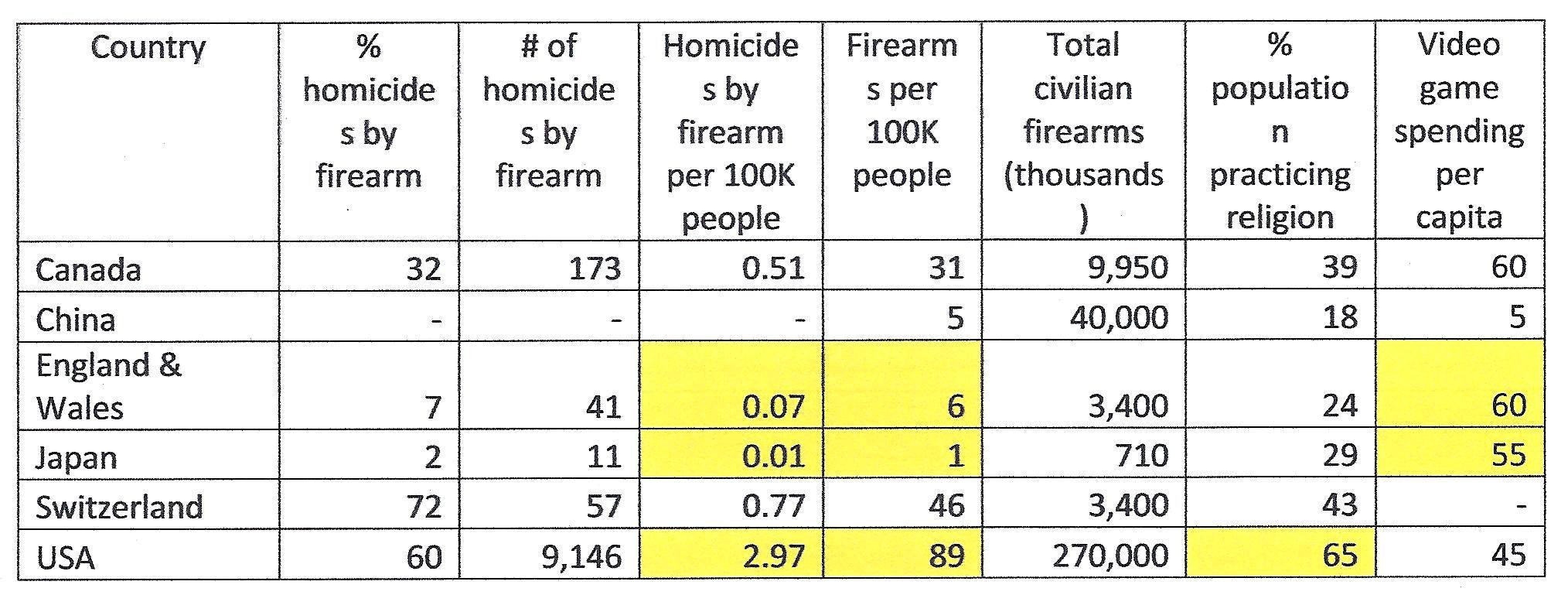Syria is subject to the jurisdiction of the International Criminal Court (ICC), which makes the recent use of chemical weapons there a crime. UN Weapons investigators analyzing evidence collected in Syria need about another week to establish if the weapons were used by Syrian government forces, if Syria’s leader authorized their use or was informed later, if they were instead used by rebel forces, or if more evidence is required to make a judgment.
President Obama says Syria’s leader is responsible for the crime and proposes unilateral retaliatory military action. Congress is debating whether to authorize that. Its vote is scheduled for two days hence, before the UN team completes its analysis. President Obama says he has the authority to take military action even if Congress votes no.
Unfortunately, US governments always have placed their faith exclusively in military power and refused to accept the rule of international law. President Bush’s UN representative formally excluded the USA from ICC jurisdiction. President Obama, despite his law degree and Nobel Peace Prize, is acting the same way.
Banning chemical weapons has been a long and tortuous challenge. The first attempt was the 1925 Geneva Protocol following the use of poison gas in WW1. Another attempt was initiated following the WW2 Holocaust but was stymied by the Cold War. In 1962 the US and USSR proposed elimination of all such weapons to the UN but between then and 1971 the US sprayed nearly 20 million gallons of chemical weapons in Vietnam, Laos and Cambodia which resulted, according to the Vietnam Red Cross, in as many as 400,000 people killed or maimed, and half a million children with birth defects.
We knew Iraqi troops were routinely using chemical weapons against Iran in the early 1980s, and supplied them with a couple of batches each of anthrax and botulism bacteria in 1986. The Senate unanimously passed the Prevention of Genocide Act in 1988, which would have banned any military assistance to Iraq and import of Iraqi oil, but it did not pass in the House. We continued to supply Iraq with equipment we knew was for use in their chemical and nuclear weapons programs until Saddam Hussein misjudged our friendliness and invaded Kuwait.
In 1993, the UN called for destruction of all existing chemical weapons, no more manufacture, and an inspection body. Congress reluctantly ratified that statute in 1997 but then passed legislation so we could refuse inspections.
At last, the genocide in Yugoslavia and Rwanda sparked the UN in 1998 to initiate creation of an International Criminal Court, an enforcement mechanism. The court’s independence and jurisdiction were major issues. Could it be prevented from launching a prosecution by a veto from the US, Russia, China, the UK or France? Would it require approval to prosecute from the country where a crime was committed? Could it prosecute if there was already a court proceeding in that nation? Could it prosecute crimes committed in civil wars? Could it prosecute crimes committed before it was established?
We said we supported the ICC. In fact, we worked hard to emasculate it. We demanded that no US citizen could be indicted without our approval. We required veto power over any indictment. We insisted that the ICC could prosecute crimes only in nations that are a party to the ICC Convention. We said the ICC could have jurisdiction only if national courts failed to act. We demanded that national security and/or a superior’s orders must be accepted as grounds for defense.
Even though those severe constraints were reluctantly accepted, we voted against creation of the court. The vote was 120 in favor, 7 opposed and 21 abstentions. The court would become effective when ratified by the 60th nation. We worked hard to prevent that. In 2001, the Senate passed an act that would have prohibited us from cooperating with the ICC in any way, barred military aid to any country supporting the ICC and required us to use any means to release US citizens held by the court.
When in 2002 the 60th nation ratified the ICC and it came into force, we notified the UN that we refused to be a party to the treaty.
At this time 122 nations have ratified the ICC and 31 more, including Russia, have signed but not ratified the Statute, 3 of which, Israel, Sudan and the US, have withdrawn their signatures. 41 other UN member nations have not signed the Statute, including China and India.
Governments of nations that have refused ICC jurisdiction tend to be engaged in activities the ICC might well prosecute, e.g., Israel’s settlements, India and Pakistan’s activities in Kashmir, China’s in Tibet and Xinjiang, ours in Afghanistan, Pakistan, Yemen and etc.
The ICC has so far opened investigations only into 8 situations in Africa. It has indicted 30 people, issued arrest warrants for 21 and has 5 in custody. The atrocities being committed in Syria should be prosecuted by the ICC and we should be insisting that it do so. We should consider other options only if the ICC is barred, e.g., by a veto from Russia, from that investigation.
We should stop telling the world we are its judge and executioner and start supporting the international rule of law.





